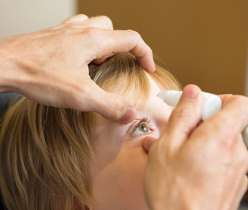A good night’s sleep is very necessary to keep yourself fresh and healthy. But sometimes due to various reasons such as mental tension, diseases or many other reasons normal sleeping patterns get disturbed. Lack of sleep or disturbed sleep is known sleep disorder.
Sleep Apnea is a kind of sleep disorder characterized by infrequent or shallow breathing or pauses in breathing during sleep. This pause in sleep may occur 5 to 30 times or more in an hour and may last for a few seconds to minutes. It is a serious health problem. It was estimated the annual health care costs of patients having untreated sleep apnea costs $1,336 more than an individual who was not having sleep apnea in the U.S. Here we are going to discuss the causes, types, treatment of sleep apnea.
Causes of sleep apnea
Sleep apnea occurs when a person’s breath gets interrupted during sleep. When breathing is paused, the level of carbon dioxide gets increased. The chemoreceptors of blood senses its elevated level. After this brain signals to wake up the person and breathe in fresh air. Basically, it is of two types.
1. Central sleep apnea (CSA)
2. Obstructive sleep apnea (OSA)
Obstructive sleep apnea (OSA) is caused by blockage of the airways when the soft tissue in the back of throat gets collapse while sleeping.
Where as Central sleep apnea (CSA) there is no as such blockage in the airways, but due to instability in the respiratory control center brain fails to signal the muscles to breathe.
Also read:Types of Eating Disorders
Who may be at risk for sleep apnea?
Anyone can be affected from sleep apnea at any age, even in childhood. There may be following risk factor for sleep apnea
- Overweight
- Generally in the age above 40
- Large tonsil, neck size & tongue and small jaw bone
- Nasal obstruction due to allergies, sinus problem and deviated septum.
- Gastroesophageal reflux
The sleep apnea may lead into diabetes, depression, heart failure, high blood pressure, stroke, headache, etc.. Untreated sleep apnea may be responsible for poor performance in academics or professional life so treatment one-time is very necessary.
Also read: Kill The Silent Killer “ High Blood Pressure ” Before It Kills You
Treatment of sleep apnea:
The treatment of sleep apnea is started from behavioral therapy. The patient is advised to avoid alcohol, sleeping pills or any sedatives, it may helpful to relax the throat muscles and thus prevent collapse the airways during sleep. The following treatments are available for sleep apnea:
- The most common treatment of mild to moderate sleep apnea is to use automatic positive airway pressure (APAP) device which helps to open the airways during sleep by means of a flow of pressurized air into the throat. Though this method of treatment of sleep apnea is oftenly used and cheaper also but some patients complain for uncomfort.
- To use the upper airway stimulation system has recently been approved by the U. S. Food and Drug Administration, in the patient who cannot use continuous positive airway pressure device. After sensing the respiration this system increases the muscle tone of at the back of the tongue, hence tongue does not block the airways.
- Generally, using medication in sleep apnea is not common, but Acetazolamide and if the patient does not have any underlying risk factors for respiratory depression, Zolpidem and Triazolam can be consider for Treatment
- Oral appliance therapy by using a mandibular advancement splint is another option to cure sleep apnea
- In Obstructive sleep apnea, the second line treatment is surgery. Surgery is generally opted when all non surgical method gets filled. By surgery the obstruction in the airways is removed.
Beside all these medical and surgical methods, modifications of life style can cure sleep apnea. Losing weight, stop smoking, don’t take alcohol in excess, sleeping on your side or abdomen rather than on back, moderate activity like brisk walk be helpful to cure sleep apnea.
Self care is the most appropriate way to deal with sleep apnea.
Also read: Migraine: Symptoms & Treatments




